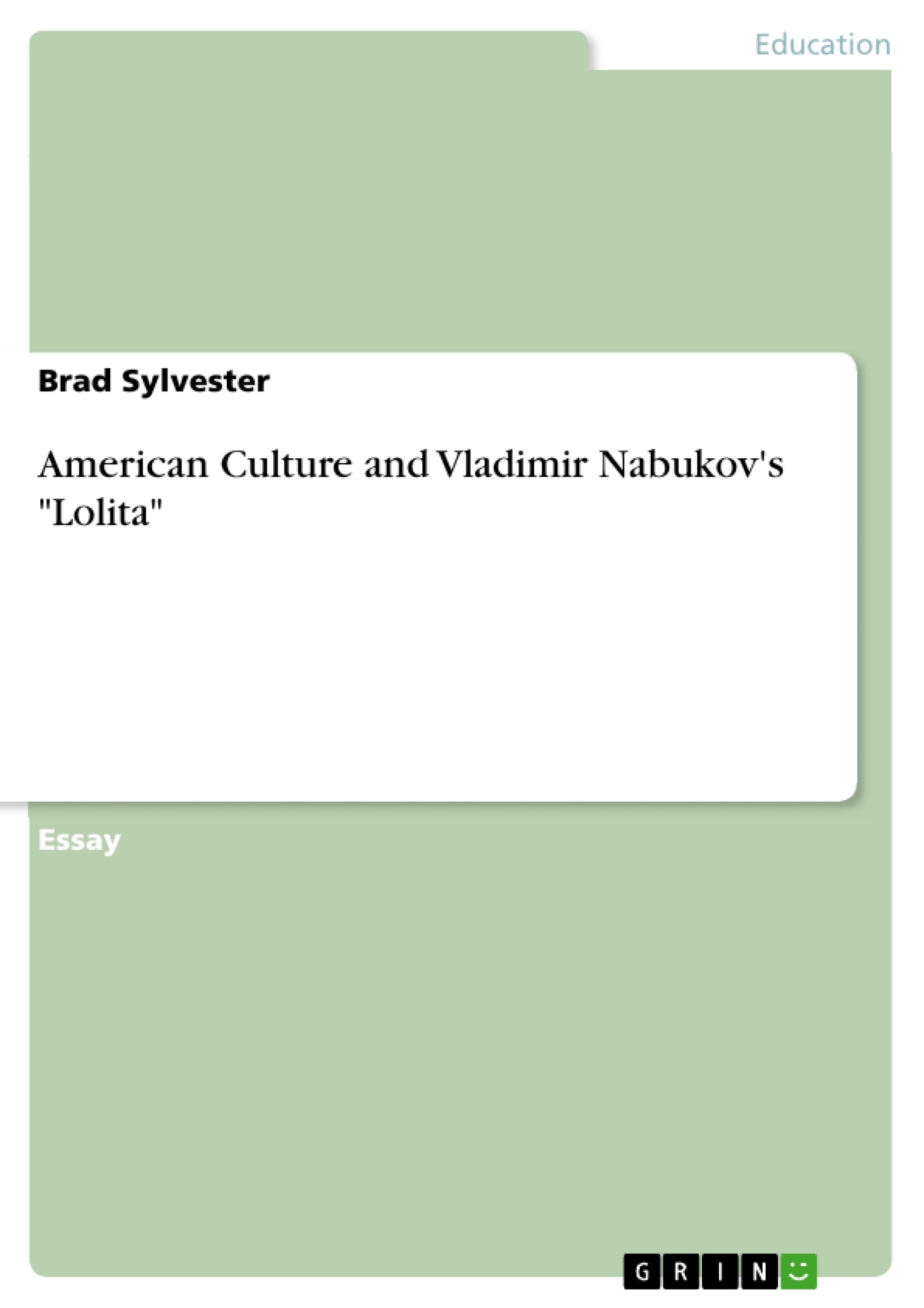This essay looks into the complex nature of the character of Humbert as well as the nature of American Culture in regards to Vladimir Nabukov's novel "Lolita".
Vladamir Nabokov’s novel "Lolita" is well known around the literary world as one of the most controversial and provocative novels of the twentieth century. It is also one of the Russian writer’s finest works despite its many negative criticisms and widespread banning. The book published in 1955, pushed the boundaries of what was deemed as socially acceptable in a post war America and took a frightening look inside the mind of a pedophile. Many readers turned away from the book entirely because of its dark subject matter while others struggled finding any sort of meaning or literary value for the same reason. I would argue that this is an unfortunate occurrence primarily due to American Cultures inability to suspend their own moral convictions, even when it is necessary to do so. "Lolita" is a masterful work of literature that requires this suspension in order to fully appreciate its literary value.
Inhaltsverzeichnis (Table of Contents)
- Introduction
- The Moral Dilemma of Lolita
- Humbert's Desire and Its Roots
- Humbert's Love and His Capacity for Change
- Beyond the Surface: Lolita's Complexity
- Conclusion
Zielsetzung und Themenschwerpunkte (Objectives and Key Themes)
This essay examines Vladimir Nabokov's controversial novel Lolita, arguing that its literary value necessitates a temporary suspension of moral judgment. It aims to explore the complexities of the characters, particularly Humbert Humbert, and challenge conventional interpretations.
- The challenges of engaging with morally ambiguous narratives
- The nature of desire and its impact on human behavior
- The complex and often contradictory nature of human relationships
- The power of literature to provoke uncomfortable questions and challenge societal norms
- The importance of considering literary merit beyond surface-level judgment
Zusammenfassung der Kapitel (Chapter Summaries)
- The introduction highlights the controversial nature of Lolita and its enduring impact on society.
- The second chapter discusses the moral dilemma presented by the novel, arguing that the reader must be willing to suspend their own moral convictions to appreciate its literary merits.
- The third chapter delves into Humbert's internal struggles, exploring the origins and complexity of his desires.
- The fourth chapter presents a more nuanced interpretation of Humbert's character, arguing that he is capable of love and displays signs of remorse for his actions.
- The fifth chapter examines the complexities of Lolita's character, suggesting that she is not entirely innocent.
Schlüsselwörter (Keywords)
Key words and focus topics include: literary analysis, moral ambiguity, pedophilia, desire, love, guilt, redemption, character complexity, societal norms, and the suspension of moral judgment.
Frequently Asked Questions
Why is Vladimir Nabokov's "Lolita" considered so controversial?
Published in 1955, the novel pushed social boundaries by providing a first-person narrative from the perspective of a pedophile, Humbert Humbert, challenging the moral convictions of post-war America.
What is the "moral dilemma" for readers of Lolita?
The dilemma lies in the conflict between the disturbing subject matter and the novel's immense literary value. The essay argues that readers must temporarily suspend their moral judgment to appreciate Nabokov's mastery.
Is Humbert Humbert capable of love or remorse?
The essay presents a nuanced view, exploring Humbert's internal struggles and suggesting that he displays signs of genuine desire, complex emotions, and eventual remorse for his actions.
How does the essay interpret the character of Lolita (Dolores Haze)?
The analysis looks beyond surface-level interpretations, examining Lolita's complexity and suggesting that the relationship portrayed is a multifaceted, albeit tragic, human interaction.
What does "suspension of moral judgment" mean in literary analysis?
It refers to the reader's ability to set aside personal ethics to engage with a character's perspective or a story's themes, allowing for a deeper understanding of the work's artistic and psychological merits.
- Citation du texte
- Brad Sylvester (Auteur), 2015, American Culture and Vladimir Nabukov's "Lolita", Munich, GRIN Verlag, https://www.grin.com/document/310815



